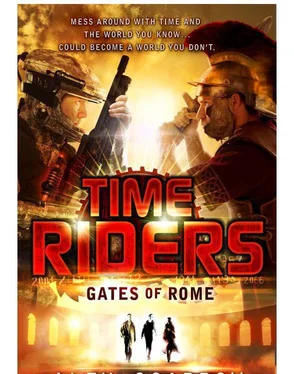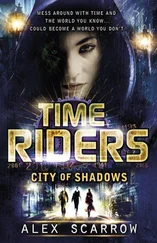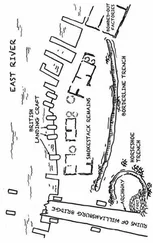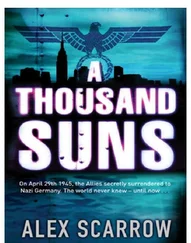Alex Scarrow - Gates of Rome
Здесь есть возможность читать онлайн «Alex Scarrow - Gates of Rome» весь текст электронной книги совершенно бесплатно (целиком полную версию без сокращений). В некоторых случаях можно слушать аудио, скачать через торрент в формате fb2 и присутствует краткое содержание. Жанр: Фантастика и фэнтези, на английском языке. Описание произведения, (предисловие) а так же отзывы посетителей доступны на портале библиотеки ЛибКат.
- Название:Gates of Rome
- Автор:
- Жанр:
- Год:неизвестен
- ISBN:нет данных
- Рейтинг книги:4 / 5. Голосов: 1
-
Избранное:Добавить в избранное
- Отзывы:
-
Ваша оценка:
- 80
- 1
- 2
- 3
- 4
- 5
Gates of Rome: краткое содержание, описание и аннотация
Предлагаем к чтению аннотацию, описание, краткое содержание или предисловие (зависит от того, что написал сам автор книги «Gates of Rome»). Если вы не нашли необходимую информацию о книге — напишите в комментариях, мы постараемся отыскать её.
Gates of Rome — читать онлайн бесплатно полную книгу (весь текст) целиком
Ниже представлен текст книги, разбитый по страницам. Система сохранения места последней прочитанной страницы, позволяет с удобством читать онлайн бесплатно книгу «Gates of Rome», без необходимости каждый раз заново искать на чём Вы остановились. Поставьте закладку, и сможете в любой момент перейти на страницу, на которой закончили чтение.
Интервал:
Закладка:
‘Sorry, Jennifer Carmel,’ he said, sighing, ‘I guess you won’t be coming along with us after all.’ His finger hovered over a delete icon and her outline disappeared along with her vital statistics. The grid square was empty now.
Rashim cursed softly. Not that he knew or cared who Jennifer Carmel had been. His frustration was more to do with the fact that unless they could find a replacement candidate with a close enough build and mass index, he was going to have to work through a lot of tedious number crunching and recalibration for this one square.
He looked up at the other ten human silhouettes dotted randomly across the hangar floor, outlines glowing red, candidates who for one reason or another were no longer going to be able to join Exodus in six months’ time.
Six months to go. Six months until T-Day. Transmission Day.
So much could happen in six months.
The world seemed to be utterly determined to destroy itself in the meantime. The Pacific War between Japan and North Korea seemed to be flaring up to a new level of intensity. While neither of them had any nuclear weapons left to use, there were far worse things they could unleash on each other.
The rest of the world seemed no less bent on its own demise. Rashim’s own country, Iran, had led the charge there and destroyed itself thirty years ago in a war that started as a dispute with the Arabian Coalition. A war over fresh water no less. Not even oil.
Water. Drinking water.
Iran, Iraq, Israel… were now three countries that were too irradiated for anyone to live in even thirty years after the exchange of tactical nuclear missiles. Even if they weren’t irradiated, the few mountainous areas that hadn’t been flooded by the rising waters of the Mediterranean and Red Seas and the Persian Gulf would be far too arid to support life. The millions that died in that one-day exchange of tit-for-tat warheads perhaps were the lucky ones, weren’t they? Death in the blink of an eye instead of this long, slow, global death.
‘Skippa?’
He looked up. SpongeBubba had waddled across the large grid-crossed floor to join him.
‘What is it?’
‘Dr Yatsushita has sent a message. He’s on his way into the facility and wants to run a transmission simulation this morning.’
‘Well, he’ll have to wait until I rework the figures without these candidates!’ Rashim snapped irritably.
‘Shall I send that message to Dr Yatsushita, skippa?’
He stood up. ‘No, I’d better talk to him when he gets in.’
‘Aye aye,’ his unit replied and waddled back across the hangar floor.
He sighed. There was so little margin for error. A miscalculation on the total mass index even by the tiniest percentage could send them out of the receiver station’s snap range. Not for the first time he was amazed at the foolhardy courage of that incredible man Waldstein.
The reluctant father of time travel.
Twenty-six years ago now, wasn’t it? The very first successful demonstration of time displacement. There and back again. Of course the man had never spoken about where or when he went. But he’d done it. More importantly he’d survived it. He’d come back in one piece and not turned inside out like burger meat.
Their own initial experiments here in the Cheyenne Mountain facility had turned a succession of animals small and large, genetically engineered human prototypes, even several real human volunteers into the equivalent of living pate.
Living… for a few ghastly moments… actually alive.
Rashim marvelled at Waldstein’s incredible genius. Dr Yatsushita was a brilliant man, but even with billions of dollars of funding and almost limitless resources at his disposal, Project Exodus still felt horribly like a large scary exercise in trial and error. Guesswork.
Waldstein, though… Waldstein had built his machine on his own. In his own garage, for Chrissake!
Or so the legend supposedly went.
Rashim often wondered what happened to that man. He’d been such a prominent figure for so many years. Meeting with world leaders, the very last guest speaker at the United Nations before it was finally dissolved in 2049. Then he seemed to disappear. Became something of a recluse. Rashim wasn’t even sure if Waldstein was alive still. There were rumours.
Rashim pushed a lock of hair behind his ear and turned to head towards the nearest glowing red ‘human’ icon a dozen yards away. Another candidate to delete.
What did you see, Roald Waldstein? Hmmmm? What did you see with those mad eyes of yours? What did you see beyond these three spatial dimensions we can comprehend? It was perhaps the most frequently asked question during the ’40s and ’50s when Waldstein’s face seemed to be on almost every media news-stream…
What did you see, Mr Waldstein? More to the point: Why did it frighten you so much?
CHAPTER 6
2001, New York
Liam watched the data slowly spooling down the screen — packets of hexadecimal data that made no sense to him whatsoever. Every so often the spooling stopped and lines and chunks of the meaningless alphanumeric text were fleetingly highlighted. Sometimes the highlighted text switched from white to green. Sometimes from white to red.
Liam pointed at a chunk that had just turned red. ‘So that’s not good, is it?’
‘That is corrupted data,’ said Bob.
The entire contents of Becks’s silicon mind had been downloaded on to the computer system over thirty-six hours ago, a mountain of data stored up by her during her brief life. And now computer-Bob was working through it, testing the data for corrupted packets. Liam looked at the progress log on another screen: a map of her hard drive, her mind, divided into a grid of blocks of data. White for the data yet to be tested, green for verified and red for lost data. The last few chunks of white were being cross-examined. The rest of the grid was a patchwork of green and red blocks. The red seemed to grow malevolently, like cancer tumours. Far too many of them.
‘We’ve lost her, haven’t we?’
Bob’s face twitched with the ghost of a response. Involuntary? Possibly. Perhaps a sign that he was once again much more than the basic code he was born with. Learning to turn incoming information into an understanding, into context… an emotion. To almost be human.
‘Significant portions of her stored data are damaged.’ He offered Liam a wan smile. ‘But I am hopeful.’
Computer-Bob was listening, despite being busy sifting through the data.
›We will not know whether we have a stable AI construct until I have compiled the data and run the emulator.
Liam looked at Bob. ‘What does that mean?’
‘The computer system will run the AI code on a software-simulated version of the chipset. It will then enter packets of the verified data block by block into the simulation to check the stability and reliability of Becks’s AI.’
‘To see whether she’s gone stupid?’
Bob’s thick brow rumpled. Liam reached out and grabbed the bulging knuckles of one of Bob’s hands. ‘Jay-zus, you really care about her, don’t you?’
His chest rumbled with a deep hur-umph. ‘She was an effective support unit. Her AI was able to develop more than mine.’
‘Ah, but that’s the ladies for you. Better at expressing their feelings than us fellas, huh?’
‘Gender is not a factor.’ Bob turned his grey eyes on him. ‘Did you care for her, Liam?’
He laughed uncomfortably. ‘Well… I…’
‘The discoloration of your cheeks and body language suggest you have a strong emotional attachment to her. Am I correct, Liam?’
He gazed at the screen.
Blocks of colour. She’s just blocks of colour on a computer screen now. That’s it. And yet in her flesh form, in human form, she’d almost seemed like another person. Perhaps a somewhat cool person, detached, aloof even. But she could make a joke, couldn’t she? And smile.
Читать дальшеИнтервал:
Закладка:
Похожие книги на «Gates of Rome»
Представляем Вашему вниманию похожие книги на «Gates of Rome» списком для выбора. Мы отобрали схожую по названию и смыслу литературу в надежде предоставить читателям больше вариантов отыскать новые, интересные, ещё непрочитанные произведения.
Обсуждение, отзывы о книге «Gates of Rome» и просто собственные мнения читателей. Оставьте ваши комментарии, напишите, что Вы думаете о произведении, его смысле или главных героях. Укажите что конкретно понравилось, а что нет, и почему Вы так считаете.












